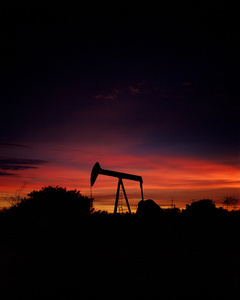
Drilling rig near the coast of Lake Maracaibo
Commission for The New York Times magazine (USA)
Oil production around Lake Maracaibo, Venezuela
cover story by Tina Rosenberg
Who holds the world's oil? You might assume it's in the hands of big private oil companies like ExxonMobil. But in fact, 77 percent of the world's oil reserves are held by national oil companies with no private equity. And the percentage of oil controlled by state-owned companies is likely to continue rising, mainly because of the demographics of oil. Deposits are being exhausted in wealthy countries and are being found largely in developing countries, where oil tends to belong to the state.
Nationalization is also a political trend in some regions, mainly Latin America, where the populist presidents of Bolivia and Ecuador have made it part of their discourse. They are led, of course, by Hugo Chávez of Venezuela. He has made private producers accept state control of their operations. When they wouldn't, as in the case of Exxon Mobil and Conoco-Phillips, he simply nationalized their holdings. Chávez has also asserted his control over Venezuela's state oil company, which before him operated very much like a private, profit-driven enterprise.

Drilling rig near the coast of Lake Maracaibo
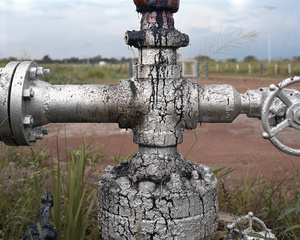
Pumping unit near Lake Maracaibo
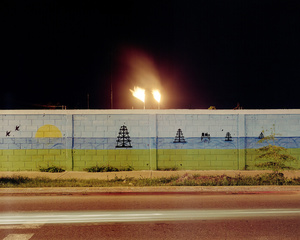
Mural depicting a more productive Venezuela with plenty of working drill rigs
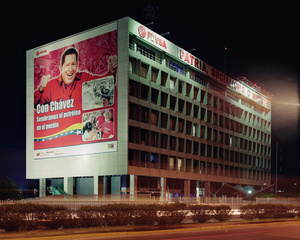
Maracaibo offices of Venezuela's state oil company
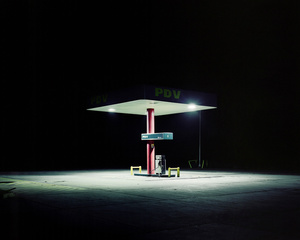
Filling station in Venezuela
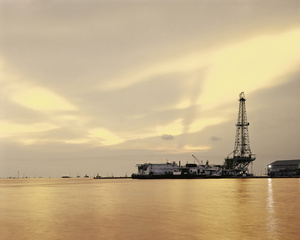
Working drill rigs on Lake Maracaibo
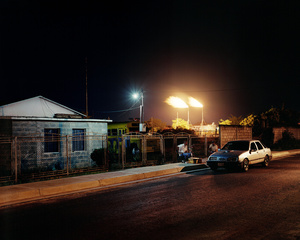
City of Cabimas with natural-gas flares in the background
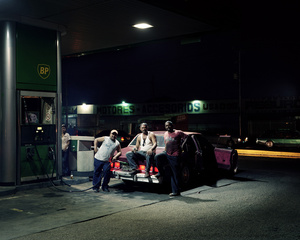
Filling station in Venezuela, where gas costs about 6 cents a gallon
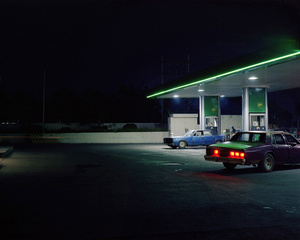
Filling station in Venezuela